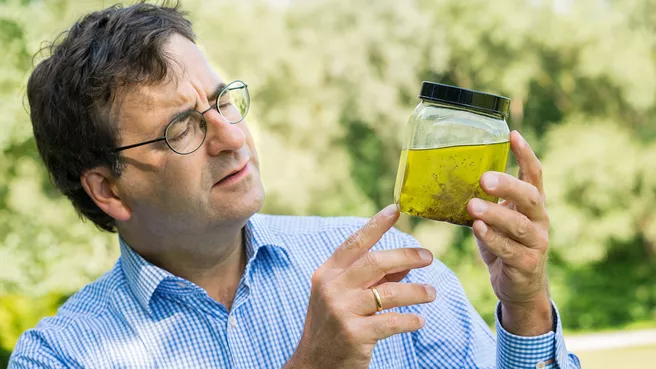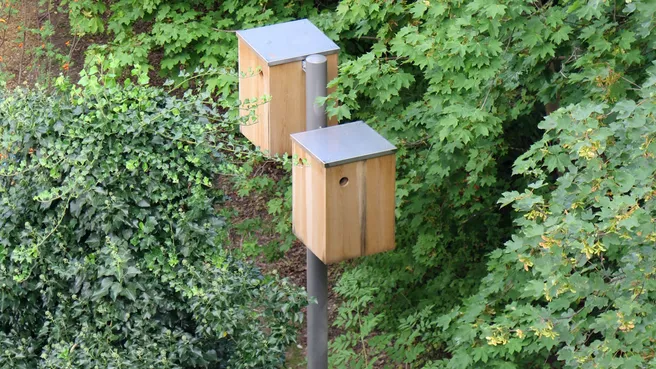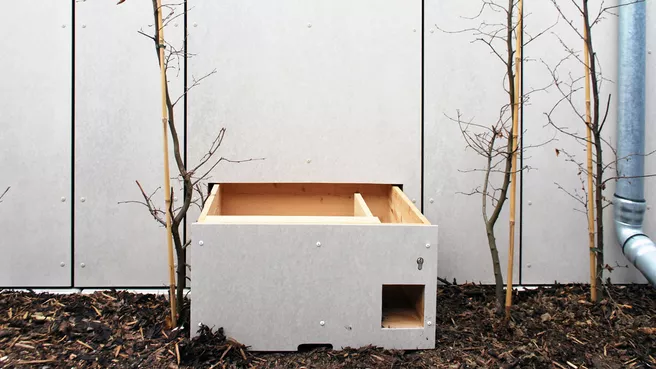Many wild animals can live in the city, although the city is not planned for animals. Humans have always coexisted with animals, and there is growing evidence that this coexistence has benefits for humans as well. However, modern urban design and the increasing densification of cities continues to reduce the space available for animals. In order for animals to continue to occur in the city, planning must be done for them as well, but our planning methods so far only consider humans. Using the method of "Animal-Aided Design", the lecture presents how we can design cities for animals as well, so that people can experience more nature in their surroundings.
Animal-Aided Design creates new urban images of nature
The goal of Animal-Aided Design is to explicitly plan for the presence of animals in urban open spaces. Animal-Aided Design addresses the life cycle and needs of wildlife. Their habitat requirements, such as nesting site, mating site, or food, are the starting point for design considerations. "In addition to typical urban species such as the blackbird or hedgehog, there are many other species that can live in urban areas if the necessary resources for offspring and adult animals are available. With Animal-Aided Design, we also want to consider wildlife in a design context, similar to what we have been doing with plants for a very long time in garden design or landscape architecture," said Prof. Weisser.
Lecture date: Tuesday, Dec. 13, 2022, 7 p.m.
The lecture will present examples of how animals can be integrated into the design of construction projects and give advice on how citizens can do something themselves to promote animals in the living environment. After the lecture, all interested parties are invited to put their questions to the speaker. The event will be moderated by TUM professor Sara Leonhardt.
More information:
More information about the event can be found at https://go.tum.de/701258
About the speaker:
Prof. Weisser's area of research is the ecological interactions between organisms and the consequences of these interactions for populations, communities and ecosystems. A major focus at the department is the study of the effects of human land use on biodiversity and the development of sustainable land use strategies. Model organisms are mostly insects and the research has a strong field component.
Prof. Weisser studied biology and mathematics at the Universities of Giessen and Bayreuth and received his PhD from the Department of Zoology at the University of Oxford (UK) in 1994. After postdoctoral work at Imperial College London (UK) and the University of Basel (Switzerland), he became Professor of Terrestrial Ecology at Friedrich Schiller University Jena in 1999. In 2011, Prof. Weisser was appointed to TUM, where he has since headed the Department of Terrestrial Ecology.
About the series:
The lecture series "TUM@Freising - Science Explained for ALL" is organized by the Technical University of Munich together with the city of Freising. At regular intervals, the TUM School of Life Sciences presents its research in the form of a lecture of interest to lay people. A subsequent discussion with the audience is expressly encouraged after each lecture. The lecture series is intended to provide Freising citizens with direct access to the scientific work at the Weihenstephan campus and offers scientists public input for their research.
Editing:
Katharina Kipfelsberger
Technical University of Munich
TUM School of Life Sciences
presse(at)tum.de
Scientific Contact:
Prof. Wolfgang Weisser
Technical University of Munich
Chair of Terrestrial Ecology
TUM School of Life Sciences
Hans-Carl-von-Carlowitz-Platz 2
D-85354 Freising
Tel. +49 8161 71 3495
wolfgang.weisser@tum.de


